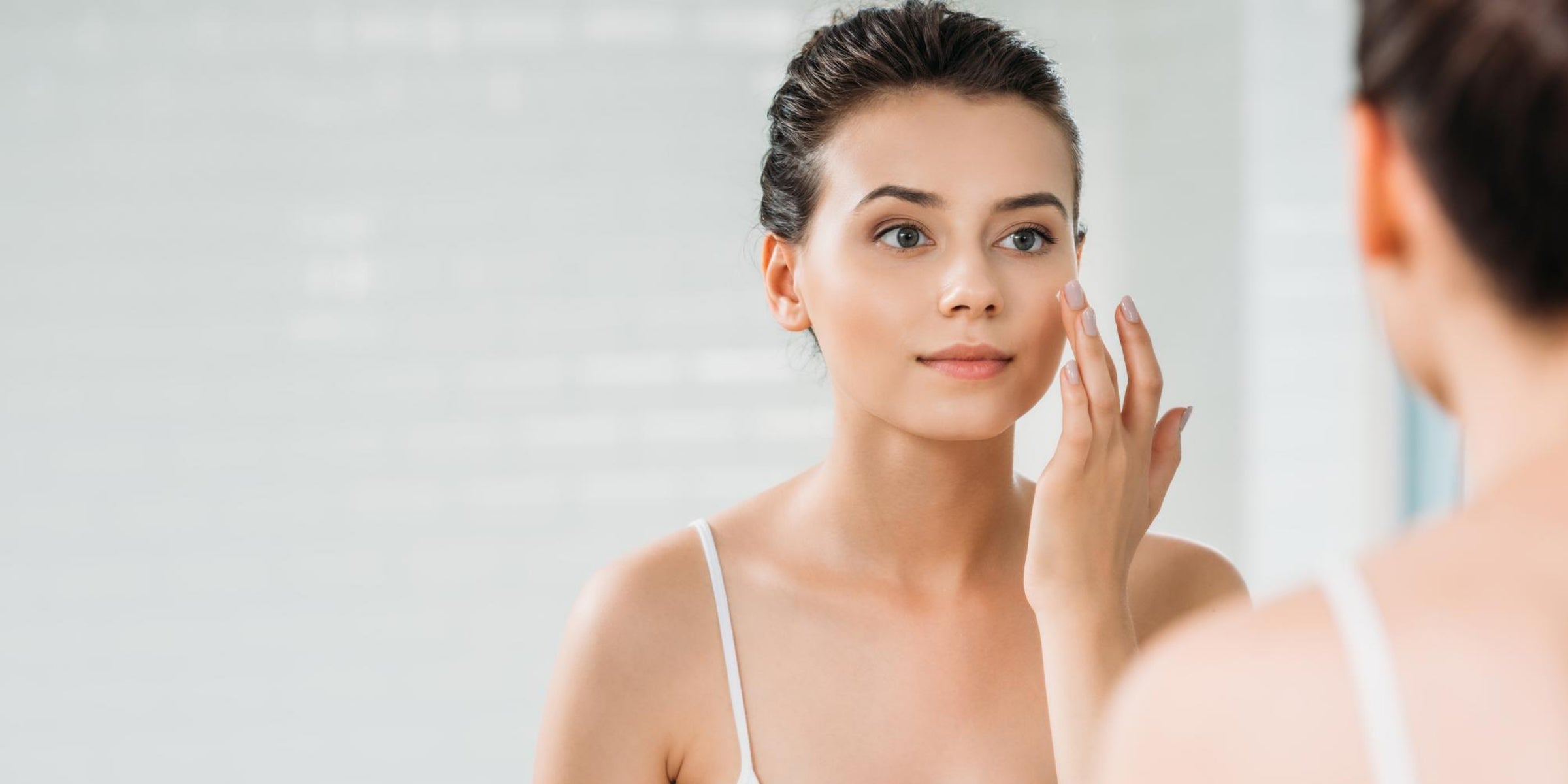Say Goodbye to Eye Infections: Choosing the Right Eye Mask for Optimal Eye Health

Stay tuned to our latest news
Whether it’s due to excessive screen time, exposure to environmental pollutants, or simply a lack of proper rest, it is no secret that our eyes bear the brunt of our daily activities. One common issue affecting many individuals is eye infections, which can cause discomfort, redness, and even vision problems if left untreated.
Since your eyes deserve the utmost care and attention, a high-quality eye mask can play a crucial role in ensuring their well-being. By creating a soothing environment for your eyes, an eye mask acts as a shield against potential irritants and promotes relaxation, allowing your eyes to rejuvenate and heal. However, not all eye masks are created equal, and selecting the right one requires careful consideration of various factors.
So, whether you frequently suffer from eye infections or are simply seeking preventive measures to maintain healthy eyes, let’s uncover the answer to the question of whether eye masks serve as key to eliminating issues like eye infection.
How Do Eye Masks Benefit Your Eyes?

Eye masks offer numerous benefits for your eyes, promoting optimal eye health and overall well-being. Firstly, they relieve eye strain caused by prolonged screen time by creating a darkened environment that fosters better sleep and helps soothe tired eyes reducing strain and improving comfort.
Additionally, they can help reduce dryness in the eyes by forming a barrier between the eyes and the surrounding environment, retaining moisture and alleviating dryness and irritation. Eye masks also have the added benefit of easing sinus congestion; certain masks feature adjustable gel packs or herbal inserts that provide warmth or cooling sensations, helping alleviate sinus congestion and relieve pressure around the eyes.
Furthermore, they act as a protective shield, preventing dust, allergens, and pollutants from coming into direct contact with the eyes, reducing the risk of eye infections. Eye masks also facilitate relaxation and stress relief by creating a serene and calm environment. They block out visual stimuli and promote a sense of tranquility, alleviating tension and promoting overall well-being.
Lastly, eye masks can aid in the healing process for those recovering from eye infections or surgery. By providing a clean and controlled environment, they help protect the eyes from external contaminants and promote faster recovery.
Are There Any Risks to Using Eye Masks?
Using eye masks can provide numerous benefits, such as promoting relaxation and improving sleep quality. However, it is important to be aware of the potential risks associated with their use and take steps to address or minimize them.
One potential risk of using eye masks is the pressure they may exert on the eyes. If the mask is excessively tight, it can cause discomfort and even lead to headaches. To minimize this risk, it is important to choose an eye mask that fits properly and does not apply undue pressure on the eyes. Adjustable straps can be helpful in ensuring a comfortable fit.
Another potential risk is the material of the eye mask causing irritation or allergic reactions. Some materials may not be suitable for individuals with sensitive skin or allergies. To address this risk, it is advisable to select an eye mask made from hypoallergenic materials or those designed specifically for sensitive skin.
Using eye masks for prolonged periods can also result in dryness and discomfort in the eyes. To alleviate these symptoms, it is recommended to take short breaks from using the mask and allow the eyes to rest and rehydrate. Additionally, incorporating eye drops or artificial tears into the eye care routine can help alleviate dryness and discomfort.
What Is an Eye Infection?

Eye infections are common conditions that occur when harmful microorganisms invade the structures of the eye, leading to inflammation and discomfort. These infections can affect various parts of the eye, including the eyelids, conjunctiva (the thin tissue that covers the front of the eye and lines the inside of the eyelids), cornea (the clear front part of the eye), and the surrounding tissues.
They can be highly contagious and may result from direct contact with infected individuals, contaminated objects, or poor personal hygiene. Prompt diagnosis and treatment are crucial to prevent complications and maintain good eye health. Understanding the symptoms, causes, and treatment options for eye infections can help individuals seek proper care and prevent further spread of the infection.
What Causes an Eye Infection?
Eye infections can be caused by various factors, including bacterial entry from face masks, touching and rubbing the eyes, and transmission through breath. These common causes can lead to the development of an eye infection.
Bacterial entry from face masks is a common cause of eye infections. Bacteria can accumulate on the surface of a face mask and easily enter the eyes when the mask is touched or adjusted. Regularly sanitizing and washing face masks is crucial to prevent bacterial buildup.
Touching and rubbing the eyes is another common cause of eye infections. Our hands come into contact with numerous surfaces throughout the day, carrying bacteria that can be transferred to the eyes when we touch or rub them. It is important to avoid touching the eyes, especially with unwashed hands.
Transmission from breath can also lead to eye infections. When an infected individual talks, coughs, or sneezes, droplets can be released into the air. These droplets can carry bacteria or viruses that can enter the eyes if proper precautions, such as wearing a face mask, are not taken.
Can You Get an Eye Infection from Using Eye Masks?

While the proper use of eye masks is generally safe and beneficial for eye health, there is a potential risk of developing an eye infection if certain precautions are not taken. It is important to prioritize cleanliness when using an eye mask. Regularly washing or sanitizing the mask according to the manufacturer's instructions helps prevent the buildup of bacteria or other microorganisms that could lead to an infection. Additionally, individuals with known allergies should choose eye masks made from hypoallergenic materials or consult with a healthcare professional before use to avoid any allergic reactions.
Sharing eye masks should be avoided, as it can increase the risk of spreading infections. Personal hygiene is crucial when using an eye mask. Ensure thorough handwashing before handling the mask to prevent transferring any bacteria or dirt to your eyes. It is also important to refrain from touching or rubbing your eyes while wearing the mask, as this can introduce bacteria and elevate the risk of infection.
For individuals with pre-existing eye conditions or a history of eye infections, it is advisable to consult with an eye care professional before incorporating an eye mask into your routine. They can provide personalized guidance on whether an eye mask is suitable for your specific situation.
How to Avoid Getting an Eye Infection from Using Eye Masks?
- Cleanliness: Regularly clean your eye mask according to the manufacturer's instructions. This helps remove bacteria, dirt, and other potential contaminants that could cause an infection. Use mild soap and water or follow the specific cleaning recommendations provided with your eye mask.
- Personal Use: Avoid sharing your eye mask with others. Sharing can increase the risk of spreading infections from one person to another. Keep your eye mask for personal use only.
- Allergies: If you have known allergies or sensitivities, choose an eye mask made from hypoallergenic materials. This reduces the likelihood of an allergic reaction. If you are unsure about specific materials, consult with a healthcare professional for guidance.
- Hand Hygiene: Before handling your eye mask or touching your eyes, make sure to wash your hands thoroughly with soap and water. This helps prevent the transfer of bacteria or other contaminants to your eyes.
- Avoid Touching or Rubbing Your Eyes: While wearing the eye mask, refrain from touching or rubbing your eyes. Touching your eyes with unclean hands can introduce bacteria and increase the risk of infection.
- Replace Old or Damaged Eye Masks: Over time, eye masks can accumulate bacteria or deteriorate, making them less effective and potentially increasing the risk of infection. Regularly inspect your eye mask for signs of wear and tear and replace it when necessary.
- Consult with an Eye Care Professional: If you have a pre-existing eye condition or a history of eye infections, it is advisable to consult with an eye care professional before using an eye mask. They can provide personalized guidance and recommendations based on your specific eye health needs.
By following these guidelines and practicing good hygiene, you can reduce the risk of getting an eye infection from using eye masks. If you experience any discomfort, redness, or irritation while using an eye mask, discontinue use and seek advice from an eye care professional for further evaluation and guidance.
Takeaway
Eye masks offer numerous benefits for eye health, including relieving eye strain, reducing dryness, easing sinus congestion, acting as a protective shield against irritants, promoting relaxation, and aiding in the healing process. However, it's important to choose a properly fitting mask, select hypoallergenic materials, take breaks, and practice good hand hygiene to minimize risks. Regular cleaning, avoiding sharing, refraining from touching the eyes, and replacing old masks are crucial to prevent eye infections. Consultation with an eye care professional is recommended for those with pre-existing conditions. Overall, following these guidelines promotes eye health while using eye masks.
Renpho Health Tips
-

Basking in Green: Exploring the Benefits of Forest Bathing
March 3, 2024
Read more >
-

Tears in Dreams: Unraveling the Mystery of Nocturnal Crying
February 28, 2024
Read more >
-

Embracing Aging: Honoring the Graceful Passage of Time
February 27, 2024
Read more >
-

Loving Your Skin: Building Your Skincare Routine for a Healthy Glow
February 21, 2024
Read more >
-

Revitalize with Coffee Eye Mask and Say Goodbye to Dark Circles
February 20, 2024
Read more >




